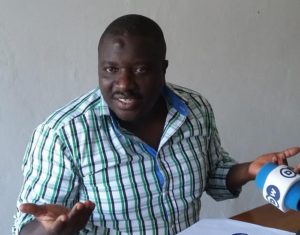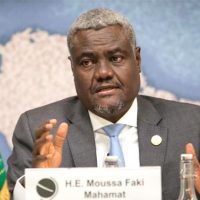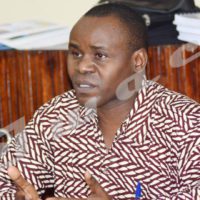
Faustin Ndikumana, the chairman of PARCEM
Two NGOs have decried a series of austerity measures the government of Burundi has adopted in its 2017 budget. The austerity measures are aimed at trying to remain on two feet in the face of a faltering national economy, mainly due to cuts of foreign sponsors on which it traditionally relied on heavily.
The 2017 budget, which Parliament voted in on 22 December 2016, will see an increase of taxes on basic needs such as sugar, fuel, beer and telephone bills, and the introduction of new taxes such as “anti-pollution tax” on cars over 10 years old and imported plastic bags and tax on imported liquid milk and the like.
Two civil society organisations, PARCEM and OLUCOME, have attacked the increase and the introduction of taxes on basic and other needs which harm the poor, who are already living in ever worsening poverty and uncertain conditions.
PARCEM chairman, Faustin Ndikumana, says that instead of imposing the burden on the poor population, the government should work to repair its relations with its traditional donors. In the same way, it should make sure there is a monitoring and evaluation system to make sure money allotted to different sectors is not embezzled. The government should also introduce tax on income. To that end, the government should create a financial intelligence body “to trace people’s incomes” to prevent tax evasion.
OLUCOME chairman, Gabriel Rufyiri, says the taxes should be repealed because “the population is poor”. Rufyiri instead suggests the introduction of taxes on the wealthy such those “with more than one house
Rufyiri also says the other way the government could get funds for its projects is by “recovering colossal sums of money embezzled by both the corrupted and the bribers whose records are well known and have been reported by OLUCOME”.
He says the government should include in its budget the BIF 30 billion it earns from the AMISOM peace-keeping mission. It should also “develop coffee, cotton and mining sectors to achieve commercial balance”, reads a press release by OLUCOME.
The 2017 budget was drafted while the country was “in a difficult economic context”. The increase of taxes and the introduction of new ones was part of measures intended to “increase internal resources”. 70,7% of the budget will be internally funded, while 29, 3% will be external.
In March 2016, the EU, the main traditional donor to Burundi, suspended its direct help to the government of Burundi. The government, the EU said, had failed to work towards the end of the violent crisis that was caused by President Nkurunziza’s bid for a third term that the opposition deemed unconstitutional.
A communiqué by the EU read, the EU “has suspended direct financial support to the Burundian administration, including budgetary support, but maintains full financial support for the population and its humanitarian aid”.
More than half of Burundi’s budget used to be externally funded. The suspension of financial support to the government has seriously damaged the national economy. Foreign currency has become rare, making importation difficult and prices of imported goods high. The national currency has also suffered serious devaluation.

















 IWACU Open Data
IWACU Open Data

